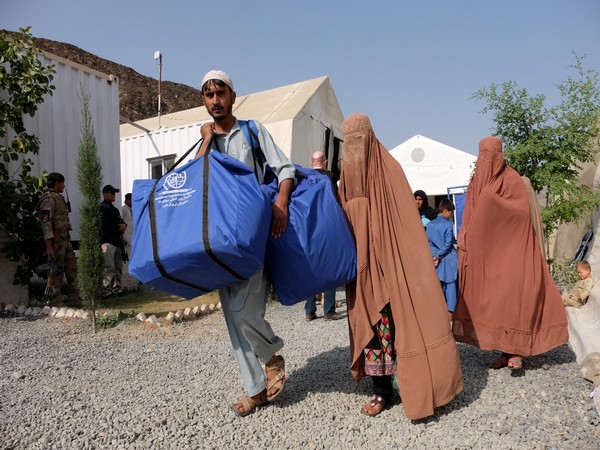
Peshawar : The federal and provincial authorities of Pakistan authorities are scrambling to put together a plan to deport more than a million undocumented Afghans and other foreigners, Dawn reported on Thursday.
This comes as a deadline looms to undertake one of the biggest deportation operations in modern times.
Following up on the recommendations of the apex committee of Khyber Pakhtunkhwa on September 27, the federal apex committee on Tuesday set an ultimatum to all undocumented immigrants, including a proportionately large number of Afghans, to leave by October 31 or face imprisonment and deportation.
The short deadline has caused ripples in the Afghan community across the country, more than half of whom reside in KP, including the merged tribal districts.
The decision also drew a sharp reaction from the Afghan Taliban chief spokesman, Zabihullah Mujahid, who has described Pakistan's behaviour towards Afghan refugees as "unacceptable" and urged Islamabad to reconsider its plan.
Background interviews with officials involved in the process revealed that authorities were struggling to put together a plan to repatriate an unspecified number of illegal immigrants, mostly Afghans, according to Dawn.
"This is a huge undertaking...Cracking down on and rounding up over a million or two illegal immigrants, holding them in detention facilities, feeding them and transporting them to the border or arranging for them to fly out of Pakistan would require a logistical plan and resources, human as well as financial...And this is what we are working on at the moment," Dawn quoted an official.
Meanwhile, according to Dawn, no one within the government actually has any idea of the number of illegal immigrants in Pakistan.
"The figures we have are estimates," a senior official looking after the subject in Islamabad told Dawn. "When we say there are 1.7 million undocumented Afghans, it is just an assessment," he added.
Dawn reported citing UNHCR, the UN refugee agency, that there are 2.18m documented Afghan refugees in Pakistan. This includes the 1.3 million refugees holding Proof of Registration (POR) cards as per the census done in 2006-07, as well as an additional 880,000 refugees granted Afghan Citizens Cards (ACCs) in 2017 following a registration drive in 2017.
"The problem is that the repatriation of Afghan refugees has long been on the agenda, particularly after the unveiling of the National Action Plan (NAP) in December 2014. Plans were made and strategies firmed up, but no serious effort was made to prepare a workable logistical plan backed up by human and financial resources," Dawn quoted the officials.
The officials further said that this is a long-pestering issue, but it is being looked with seriousness now only.
They added that any plan to undertake a repatriation of undocumented foreigners of this scale should involve mapping, sensitisation, logistics and mobilisation of human and monetary resources.
However, the most critical of all, the "legally illegal", as one official put it, is the status of hundreds of thousands of Afghans who fled to Pakistan after the return of Taliban in Afghanistan.
Among them are former servicemen, human rights activists, singers and musicians and others. Many of them have come with valid visas, and many others just crossed over into Pakistan without any travel documents, Dawn reported.
While many of them lie low, thousands of others, according to the UNHCR, have approached them for asylum or seek settlement in a third country.
The screening process done by the UN agency in partnership with the Islamabad-based NGO Society for Human Rights and Prisoners' Aid (SHARP) is painfully slow, involving data collection and in-person interviews of the families and their settlement according to the settlement quota of third countries, Dawn reported.
It further reported citing government officials that the process was not only slow, but the success rate of individuals seeking settlement was less than 5 per cent, meaning that most of the new arrivals in Pakistan might not meet the standard requirement and end up becoming illegal immigrants as well.
The "thousands" of new arrivals who have approached the UNHCR so far are technically and legally under the international body's protection. But this leaves hundreds of thousands of others who are waiting for their turn to be registered and screened, and their fate is in limbo.
"Pakistan has remained a generous refugee host for decades. The UNHCR acknowledges and appreciates this hospitality and generosity," Dawn quoted Qaisar Afridi, UNHCR's spokesman in Islamabad, as saying.
"Any refugee return must be voluntary and without any pressure to ensure protection for those seeking safety...Pakistan needs to show compassion for the most vulnerable," he added.